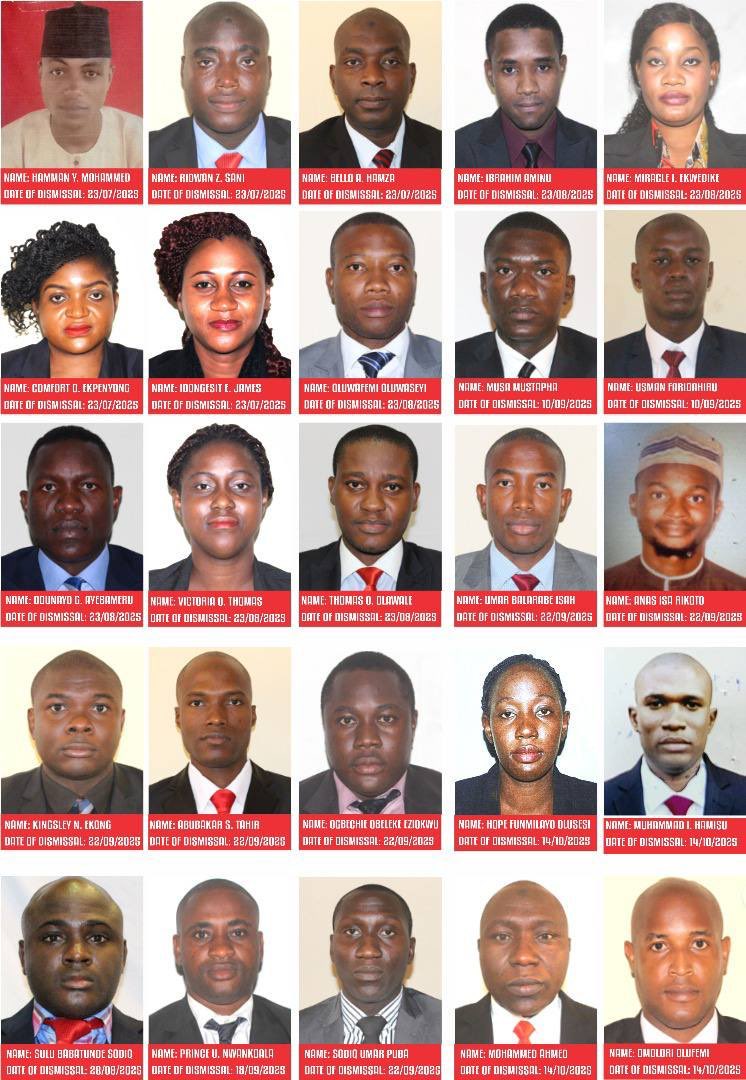

In a decisive and sweeping action, the Department of State Services (DSS) has confirmed the immediate dismissal of 115 personnel from its ranks, marking one of the most significant internal shake-ups in recent memory for Nigeria’s primary domestic intelligence agency. The development, disclosed late on Tuesday by senior officials at the Service, underscores a deep commitment to internal reform, accountability and the tightening of operational standards within the agency.
According to official sources, the 115 dismissed employees were found to have breached service guidelines, failed internal vetting procedures or were deemed unfit for continued service. While the DSS did not provide an itemised breakdown of the individual cases, the agency emphasised that the action aligns with its mandate to maintain “the highest possible standard of integrity and performance” in the face of evolving security challenges. A spokesperson stated that the dismissals were executed with immediate effect and that the affected individuals are now barred from representing the Service in any capacity.
Security analysts suggest that this purge represents a broader effort by the DSS leadership to rebuild confidence both within the agency and among the general public. In recent years, intelligence lapses and internal scandals have drawn critical scrutiny. The reshuffle of senior leadership at the DSS and the National Intelligence Agency last year—linked to concerns over asset seizures abroad and delayed intelligence flow—may have set the stage for this sweeping enforcement of discipline.
Observers note that the consequences of such a large-scale purge will ripple across the Service’s operations. On one hand, dismissing personnel en masse sends a strong signal of zero-tolerance for lapses; on the other, it poses risks around operational continuity, institutional memory and morale. Senior intelligence officials are reported to be working overtime to ensure that mission-critical functions are not disrupted by the turnover.
Public reaction to the news has been mixed. While some Nigerians welcomed the purge as overdue reform, others raised concerns about transparency and fairness of the process. Previously, in a separate but related case, the DSS issued warnings about dismissed staff impersonating agents and engaging in fraud—perhaps illustrating the urgency behind the present action. One civic group noted: “This sends a message, but the question now is whether the Service will follow through with systemic change or simply cycle personnel out without addressing root problems.”
Inside the Service, the development has reportedly triggered a “reset” culture, with renewed emphasis on vetting, ethics training, internal audits and even psychological evaluations. While specific details remain classified, sources say that those dismissed include staff at various levels, from support and operational roles to technical and administrative posts. The DSS leadership is believed to be reviewing recruitment pipelines, promotion practices and the criteria for accessing sensitive assignments.
From a government perspective, the purge comes at a critical time. Nigeria continues to face escalating threats: insurgency in the northeast, banditry in the northwest, kidnappings in the central belt and maritime insecurity in the Gulf of Guinea. For the DSS to remain credible and effective, many argue that both outward performance and inward integrity must align. The timing and scale of the dismissals suggest that the federal government is signalling seriousness about re-armouring the intelligence architecture for the challenges ahead.
However, several questions linger. How will the DSS manage the gap created by such a large exit? What support is available to those who served and are now suddenly unemployed? Will this action feed perceptions of internal purge for political reasons rather than purely merit-based enforcement? Past occurrences of mass dismissals in the Service have sometimes drawn accusations of tribalism or favouritism. To maintain legitimacy, transparency around the criteria and process will be crucial.
The DSS has assured the public that the names of eligible and properly vetted staff remain unaffected and that the security of the nation remains uncompromised. Analysts believe that the next few weeks will be critical. The agency is expected to provide further updates on how the operation is unfolding internally, including new hires, training initiatives and the reintegration of dismissed roles.
In the broader context, this purge may be seen as part of a trend across government agencies, where leadership is under pressure to demonstrate accountability not only for policy performance but also for internal governance. For the DSS, an organisation whose work is often shrouded in secrecy, the challenge remains balancing operational confidentiality with public trust. Whether this dramatic move will bolster that trust or raise fresh doubts will depend heavily on follow-up transparency and consistency.
As Nigeria watches closely, the 115-personnel dismissals by the DSS may well become a turning point — not only for the Service itself, but for how intelligence and security agencies in the country address internal discipline, reform and their relationship with the citizenry they are charged to protect.


